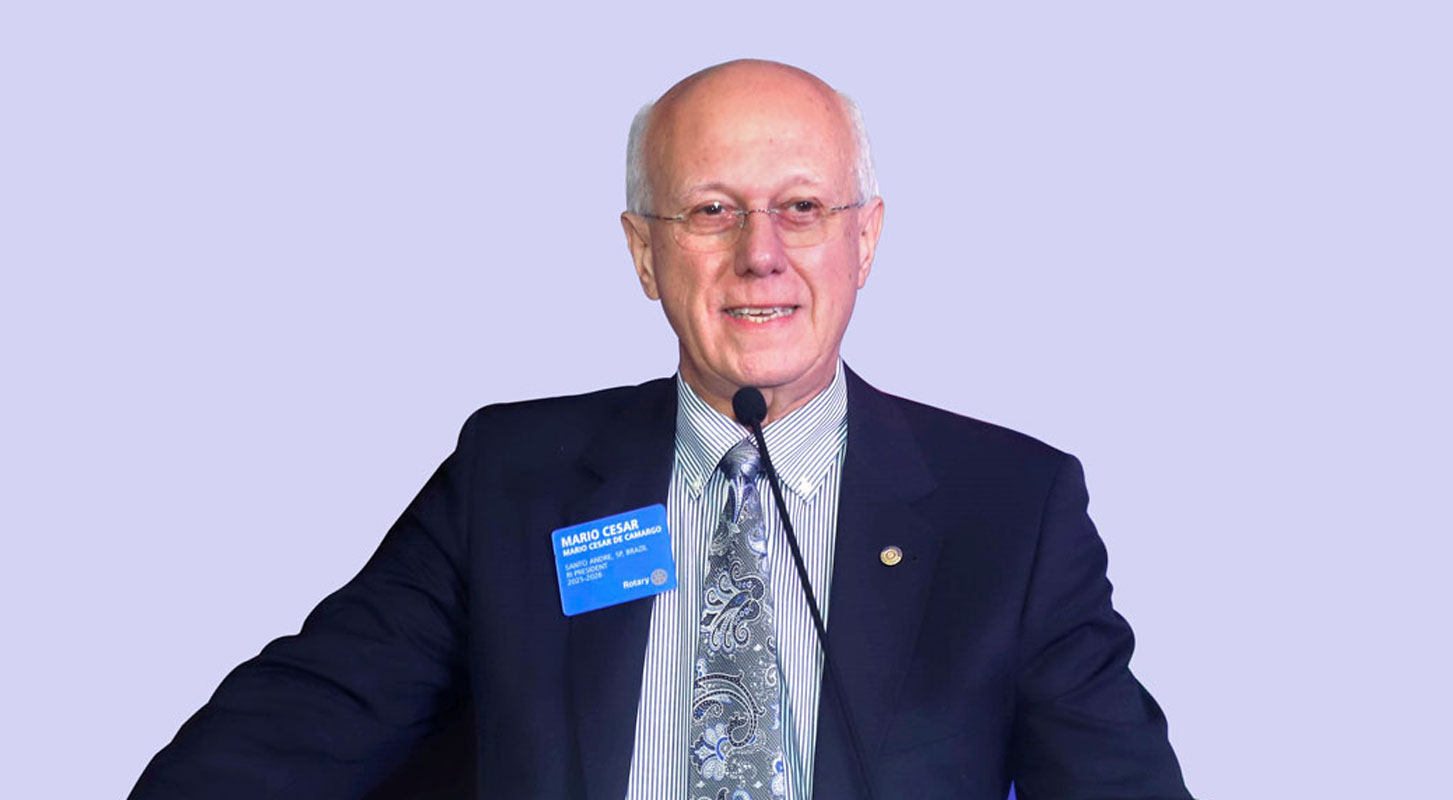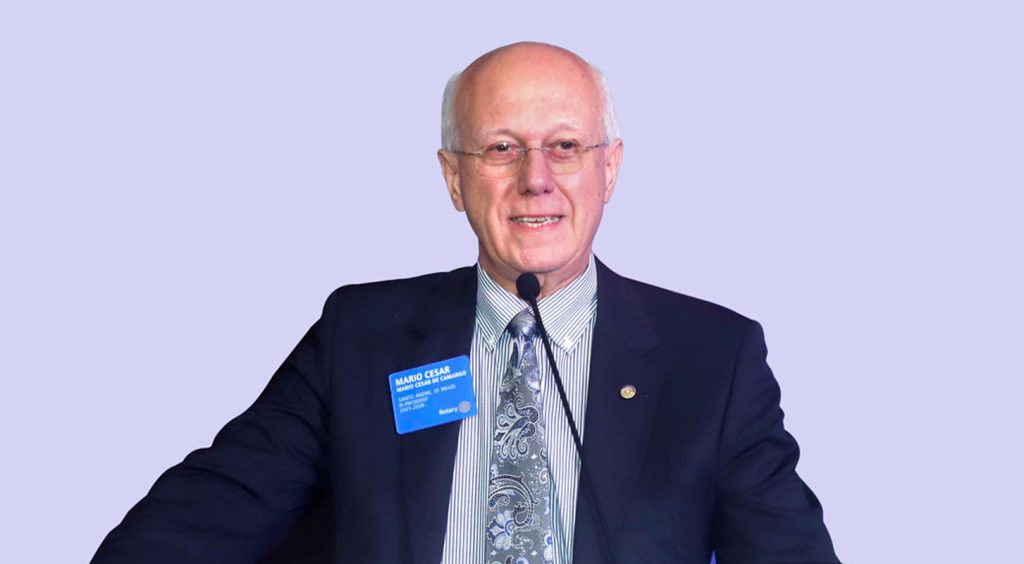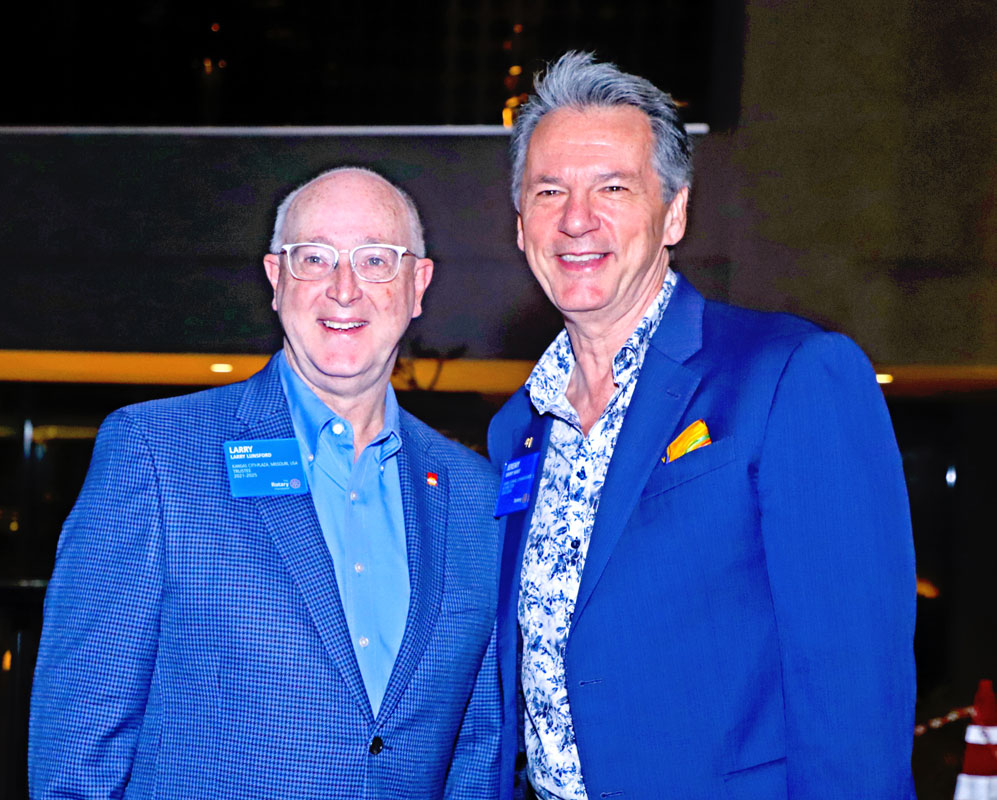
Dream, connect, persist – these are the guiding principles that RIPN Mario de Camargo emphasised to the DGNs at the Bengaluru zone institute.
Reflecting on The Rotary Foundation’s inception, de Camargo underlined the importance of dreaming big. “When Arch Klumph established the Foundation in 1917, he was its only believer as Rotary presidents around the world thought that the Foundation will compete with RI for attention. Klumph had to set up the Foundation office in his own company because RI would not dedicate a room for its office. The first real contribution, aside from the $26.5 initial fund, was the $1.7 million donation that Rotarians gave to the Foundation to honour Paul Harris’ death in 1947. Klumph had to wait patiently for 30 years to fulfil his dream,” he said.
The second mantra is to connect, recognising that success is a collaborative effort. “You will never be able to do anything by yourself. Neither can I. I will always depend on you and you will in turn depend on your presidents, and they will depend on Rotarians. If there is no team work, there is no work. If you do not know to gather a team you cannot achieve anything.”
Reflecting on his and spouse Denise’s visit to Mysuru, Belur and Hassan just before the institute, de Camargo underscored the significance of personal connections. “Connecting with people is the soul of leadership. The Rotarians were touched because it is probably the first time an RI leader has visited them. They showered on us so much affection. That is the way you, as leaders, should behave. We are people of action and our actions must speak much more than our words. Rotarians are not stupid. If we are not fair, they will not listen to us. If you are not committed enough to act, your good projects and ideas will not come to fruition.”
Embrace failure, was his third mantra. Every leader encounters challenges, but the choice to rise after a fall defines true leadership. “You must just get up, dust off and move on, and never be defeated by failure. Success is not final, and failure is not fatal,” he said, and urged the incoming leaders to develop the art of apology. “You will face disagreements. Be ready for debates and discussions. When the discussion gets heated, don’t hesitate to apologise, and your team will respect you. Take responsibility for the results. I take responsibility at the global level, and you do so at the district level.”
TRF trustee Larry Lunsford from the US gave an insight into the future of the Foundation to the DGNs. If every one of us pitches in with whatever way, and if every one of our districts can do a million-dollar dinner, we can reach our goal — to raise $2.025 billion by 2025,” he said. He commended India’s generosity to TRF. “We are 15 trustees with a tremendous obligation to channelise your resources well, to create the right programmes.”
He urged the incoming leaders to support the Paul Harris Society which recognises members who contribute $1,000 every year to the Annual Fund. India ranks third in this membership.
“I look forward to the day when India tops the list,” he said. Complimenting India for showing the way with Rotary- CSR partnerships, he mentioned plans to replicate this programme in Brazil, Australia and New Zealand. “We are doing an inventory of the countries around the world that may have the opportunities for the CSR platform.”
Talking about what next after polio, he said, “we do not have a lot of conversation on that yet, as we have to see the end of Polio first. Programs of Scale could be a possibility because we are trying to build our global grants to a higher structure. We must find programmes to continue to engage with the Gates partnership,” he said.
The Foundation is planning to set up Rotary Peace Centres in the Middle East or North Africa by 2024; and open one in Latin America. “By 2030, we will have nine Peace centres and will be replacing the one at the Chulalongkorn University, Bangkok, with another one in Asia,” said Lunsford.
Reflecting RI President Gordon McInally’s call for continuity, RI director Jeremy Hurst from Cayman Islands, UK, stressed the importance of sustained effort, envisioning Rotary’s growth beyond individual terms. “Imagine how well we can do if we can build continuity, and not be like a jigsaw where we go in one direction one year and then another the next year. The worst challenge is taking it as ‘my year’ rather than ‘our year’. We should hand over the baton of Rotary to our successor and continue assisting to take the organisation forward.”
He said that the Board has approved a membership growth goal of 12.5 lakh members by 2030 in celebration of Rotary’s 125th birth anniversary. More learning programmes will be launched on July 1, 2024 to assist governor nominees to meet our goals,” he added.







